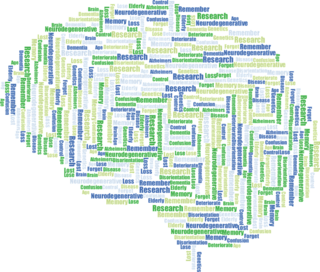Psychopharmacology
7 Actions You Can Take to Prevent Alzheimer’s
No medication exists to cure Alzheimer's, but we are learning about prevention.
Posted June 23, 2018

One third of people in the United States over age 85 suffer from Alzheimer’s. The medications used for Alzheimer’s so far, while beneficial in targeting symptoms, are often not used widely due to their side effect profile, and do not prevent Alzheimer’s disease from occurring.
Nevertheless, as ongoing research is showing, there are a number of preventative measures that could be worth taking. Here are some of them.
1. Plant-based compounds: A new study by Shal and colleagues that came out within the last month showed the neuroprotective properties of various plant-based compounds that might help prevent the neurodegeneration of Alzheimer’s disease.1 The authors of this latest study note that phytochemicals such as Quercetin (in mulberry fruit), Oxyresveratrol (in white mulberry), Cucurmin (found in turmeric), and different compounds found in ginger root, green tea, citrus fruits, gingko biloba, and ginseng have strong anti-inflammatory and/or anti-oxidant properties that are neuroprotective and have potential for benefit in Alzheimer’s disease.1 Some of these compounds, such as ginger, cucurmin, and gingko have been used for thousands of years for their medicinal properties in China, India, and other parts of the world.1 Gingko has shown slowed cognitive decline in studies involving thousands of patients.2
Alzheimer’s is a severe, progressive, neurodegenerative disease involving brain inflammation that has no cure to date. However, research involving many of the above-mentioned compounds so far has focused on animal brain models in which protective and preventative effects have been proven. More research is needed to further establish similar neuroprotective efficacy for Alzheimer's disease in human brains.
Also worth noting is that anything that has an effect (or benefit) can have a side effect. Although from what we know so far, side effects associated with the above-mentioned compounds are much lesser than those associated with prescription medications for Alzheimer’s. However, side effects can occur. For instance, compounds such as gingko can increase risk of bleeding, which is especially significant and important if you are already taking a blood-thinning medication, have a bleeding disorder, or have an upcoming surgery.3 In any case, you should not use any of these agents without consulting with your doctor as the risk of interactions and adverse effects is there, especially as elderly people often have many medical problems and a greater number of medications that can increase risk of interactions.
2. Address vascular risk factors such as hypertension and high cholesterol: Another new study by Larsson and Markus that just came out this month shows that antihypertensive treatment and statins may lower likelihood of developing dementia and Alzheimer’s disease.4 This meta-analysis is based on a review of eight randomized controlled trials and 52 prospective trials.4 Hypertension and high cholesterol have been recognized as ‘vascular risk factors’ for Alzheimer’s disease. We know that statins have been associated with controversy about their risks-versus-benefit profile. However, these results are especially worth noting as they shed light on a different aspect of statin use.
3. Aerobic Exercise: Moderate aerobic exercise has the strongest evidence for protective effects on brain health and in reducing risk of Alzheimer’s disease.5 A study showed that walking was associated with increased volume of the hippocampus, the part of the brain most involved in memory.5 Exercise achieves these benefits by strengthening neural cell connections, decreasing inflammation and oxidative damage and increasing levels of brain-derived neurotrophic factor (BDNF), which has been linked with a reduced risk of Alzheimer’s disease.5
Check with your doctor what level of physical exercise is recommended for you, based on your health and any other medical conditions. See U.S. Department of Health and Human Services physical activity guidelines for Americans here.5
4. Lower stress: High stress levels have been associated with oxidative damage that is linked with not only increased risk of cancer but also Alzheimer’s disease. Mindfulness-based exercises, along with other interventions, such as exercise and psychotherapy, can help reduce stress levels.
5. Sleep well: Sleep is a crucial component of optimal brain health. Amyloid matter, the accumulation of which leads to Alzheimer’s, is wiped out during sleep. Studies find that adequate sleep as well as good-quality sleep are important to prevent Alzheimer’s disease.5
6. Address depression: Depression is a risk factor for Alzheimer’s disease. Effective treatment of depression may help reduce risk of Alzheimer’s dementia.5
7. Mediterranean diet: A diet rich in legumes, yogurt, cheeses, fish, and olive oil has been associated with a lower risk of Alzheimer’s disease.5
There are not enough words to describe the pain and despair that patients with Alzheimer’s disease and their family members go through, so preventative steps are important. While genetic risk factors for Alzheimer’s may be beyond your control, the above-mentioned factors are in your hands.
Note: This article is for informational purposes only and is not intended to provide medical or psychiatric advice or recommendations, or diagnostic or treatment opinion. If you suspect a medical or psychiatric condition, consult a health care provider.
References
1. Shal B, Ding W, Ali H, Kim YS, Khan S. Anti-neuroinflammatory Potential of Natural Products in Attenuation of Alzheimer’s Disease. Frontiers in Pharmacology. 2018;9:548. doi:10.3389/fphar.2018.00548.
2. Tan MS, Yu JT, Tan CC, Wang HF, Meng XF, Wang C, Jiang T, Zhu XC, Tan L. Efficacy and adverse effects of ginkgo biloba for cognitive impairment and dementia: a systematic review and meta-analysis. J Alzheimers Dis. 2015;43(2):589-603. doi: 10.3233/JAD-140837.
3. Roland PD, Nergård CS. [Ginkgo biloba--effect, adverse events and drug interaction]. Tidsskr Nor Laegeforen. 2012 Apr 30;132(8):956-9. doi: 10.4045/tidsskr.11.0780.
4. Larsson SC, Markus HS. Does Treating Vascular Risk Factors Prevent Dementia and Alzheimer's Disease? A Systematic Review and Meta-Analysis. J Alzheimers Dis. 2018 Jun 9. doi: 10.3233/JAD-180288. [Epub ahead of print]
5. Henderson VW. Three Midlife Strategies to Prevent Cognitive Impairment Due to Alzheimer’s Disease. Climacteric : the journal of the International Menopause Society. 2014;17(0 2):38-46. doi:10.3109/13697137.2014.929650.




